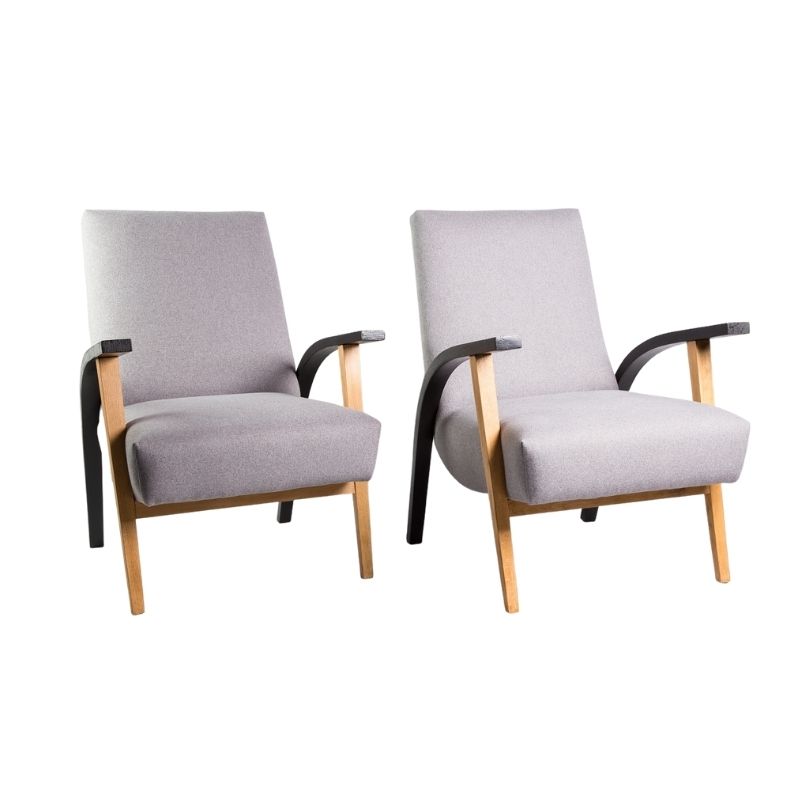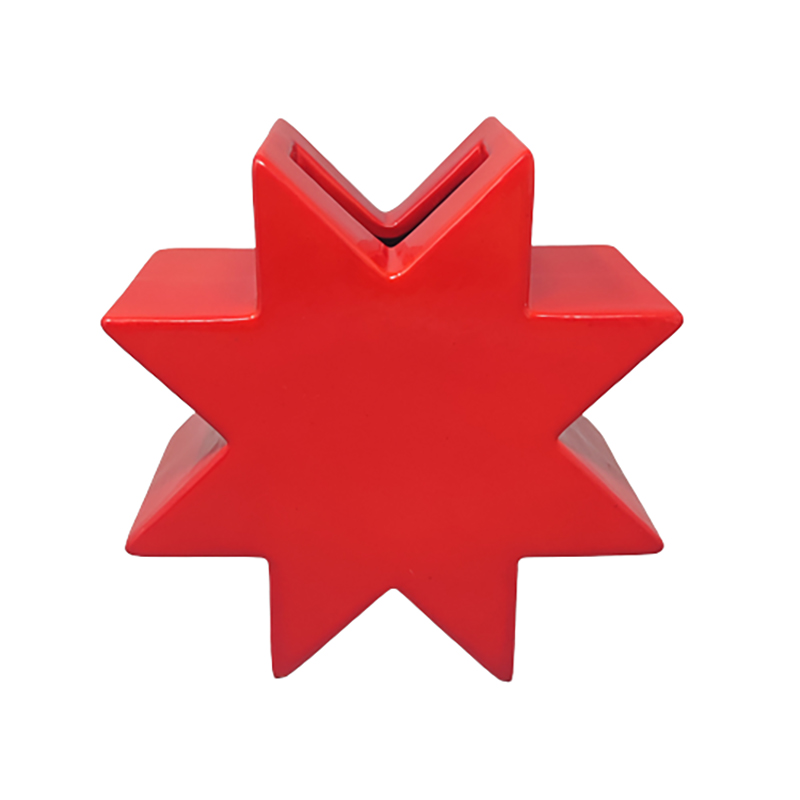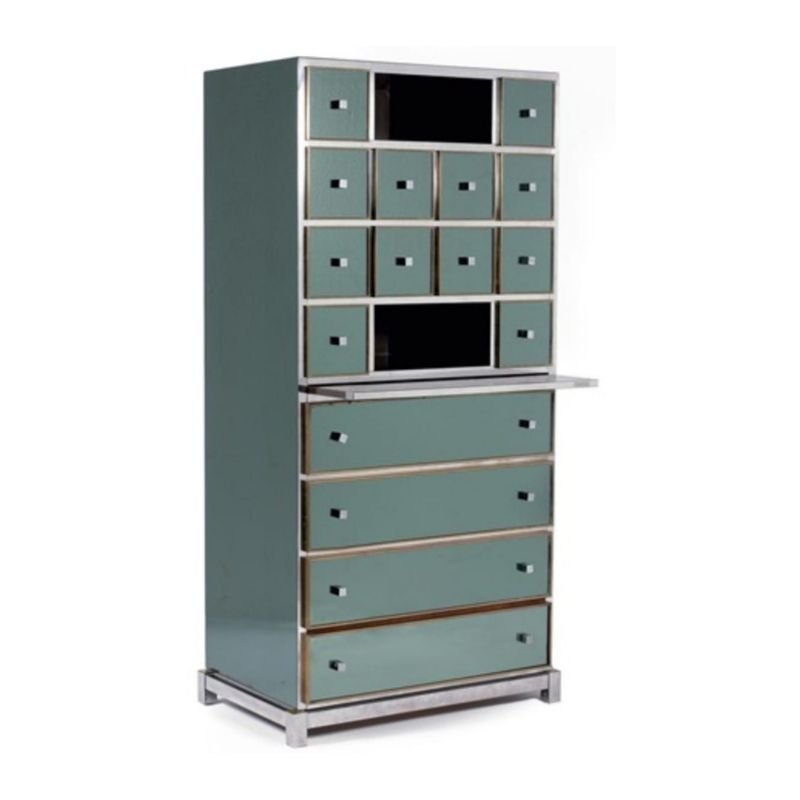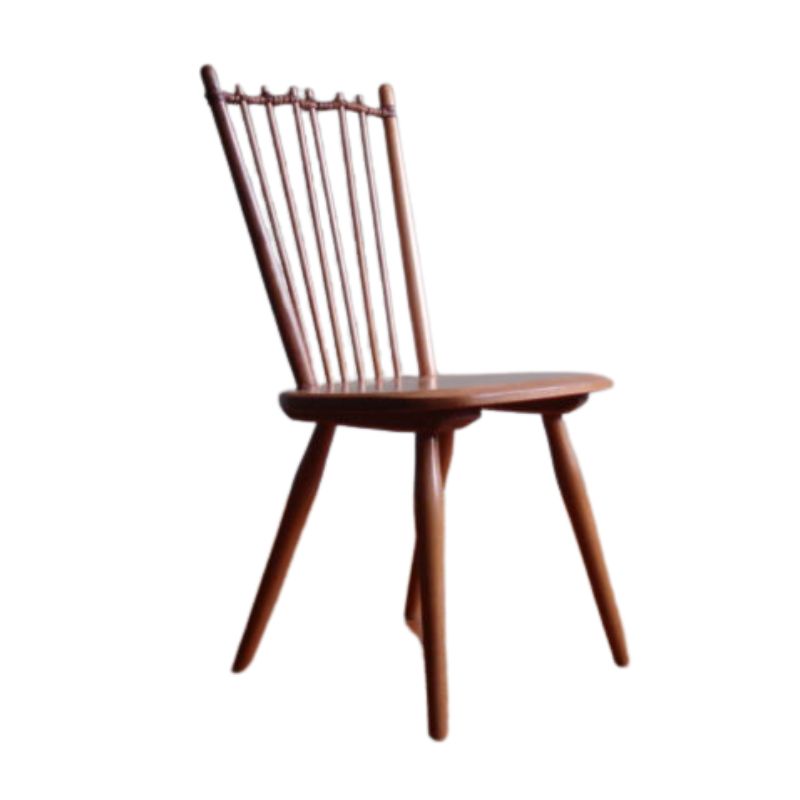The pic the seller sent me
of the damage was sized much larger than the one I posted here. In it, I could see the damage and repair close up, and it looks like veneer to me. I've attempted to post the pic here in its larger size so you can see what I mean. We'll see if the sizing works, as I never have much luck with it.
After further inspection, I...
After further inspection, I have another guess. It now appears to me that someone took a saw and cut out part of the original table top (presumably after some significant damage had occurred). Then a veneered piece was spliced in. Subsequently, the veneered infill piece experienced some chipping damage to the top surface.
While it may be the photo playing tricks on my eyes, there does appear to be a clear joint line (and the grain does not line up) between the original and veneered pieces.
I guess we'll find out shortly what the actual condition is.
Yes, that's right.
what I was going to say, as well, about what appears in the photo. Or it may be that the inlaid piece was solid but has had subsequent damage ?
Either way, I'd stay away from this damaged table. Wait for another bus -- they come along with regularity ! I would take this table if it was free . . .
(Those sun-and-shadow seller photos are the height of irresponsible presentation, aren't they ?)
Thats very interesting.
The table Robert pointed out on eBay has been butchered, the brass detailing underneath has been removed and the legs have been fitted with large hinges running along their length.
It does have a veneered top which appears to be original however.
The table has a later addition France & Son tag so perhaps Robert is correct, later tables did have veneered surfaces.
Comparing the OP's table with this example on eBay (first image) they both have what appears to be a thicker less elegant surface to all the solid teak examples I have had experience with (last image).
I didn't buy the table.
The top was definitely veneered, and I can't imagine anyone planing it down to put plywood on top and then cutting the sides to a slant and veneering them, so I agree that it must be original. The top didn't look like teak to me - maybe blond mahogany? - but the legs were lovely and the underside was solid teak, which makes me wonder why the manufacturer had to do all that veneer rigamarole anyway.
Do you think I should have bought it? Do you think it is repairable? It's not too late, since the guy told me that several people had looked at it and gone away shaking their heads. It's clearly not a hot-ticket item, which is probably a good indication for me to stay away too.
Interesting!
The one pictured (presumably in the US?) has piano hinges too.
Could these be something inherent in much later models too?
Surely too much of a coincidence, both with veneered tops and piano hinges instead of the ball and socket hinges?
[edited] the piano hinges shown are on the table top on the second table?
Interesting!
is right.
This is something wrong in the state of Denmark.
If you had any intention of staying in business for long, you would not design a table this way, as it guarantees veneer chipping. You would only do this if you wanted a cheap way of faking the appearance of a solid teak table (it hides the tell-tale edge banding).
I can think of two reasons these tables were built the way they were built:
1. Cado's management knew it wasn't going to be in business for much longer and ordered a gross cheapening of the product. Maybe a catalog acknowledged this in the small print. Maybe they just snuck them out the door.
2. I won't mention the second reason. The first is bad enough.
edit: I take it back, this table deserves mention of the second reason: this table is what a bad, vintage forgery would look like.
Oh, and of course the veneer ...
Oh, and of course the veneer chipping could be fixed. (It would recur though.)
The better question is: what do you have when it is fixed?. I am not sure what the answer to that is. I don't want to own it. And I sure wouldn't call it a Peter Hvidt & Orla Mølgaard-Nielsen designed table.
The solid teak (proper) version of this table along with the Finn Juhl model 540 dining table are the finest quality dining tables I have seen.
They would have been very expensive to produce and must have been premium pieces in the France & Son catalogue. Lief, I would be interested to know how much these pieces originally retailed for from your EFC brochure.
As Lief suggested, I suspect this watered down version was introduced as a cost cutting measure after the sale to Cado. I cant imagine this product leaving the factory under Charles France's watch.
If you need any help, please contact us at – info@designaddict.com









